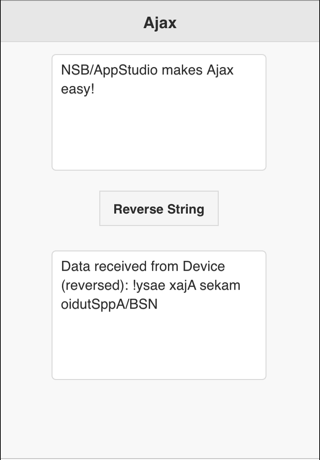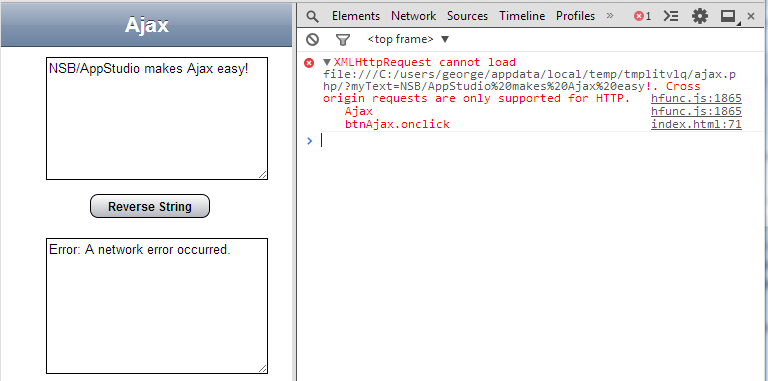Web Services Fundamentals
Introduction
- Web Services are resources which are accessed over the web
- AppStudio Apps can access Web Services
- The information that is pulled from the web can make interesting apps
- Data can be pulled from your own server or someone else's.
- Mashups are apps which pull information from more than one source
Same Origin Policy and CORS
Same Origin Policy (SOP): The policy permits scripts running on pages originating from the same site – a combination of scheme, hostname, and port number – to access each other's DOM with no specific restrictions, but prevents access to DOM on different sites.
Cross Origin Resource Sharing (CORS): is a mechanism that allows scripts on a web page to make AJAX requests to another domain, not the domain the script originated from. Such "cross-domain" requests would otherwise be forbidden by web browsers, per the Same Origin Policy.
- Suppose we create an AppStudio app.
- It gets saved on our server (nsbapp.com), together with all the files it needs to run.
- When someone runs it, they enter http://www.nsbapp.com/HelloWorld into their browser.
- The app is then loaded from the website and stored on the device.
- Since the app is loaded from nsbapp.com, SOP allows it to access resources on nsbapp.com: HTML, JavaScript, CSS files, images, etc.
- However, it would not be allowed full use of resources on another site, such as nsbasic.com.
- CORS is a way of allowing apps running from another server to access specific resources on the server.
AJAX
AJAX: stands for Asynchronous JavaScript and XML. It is a group of interrelated web development techniques used on the client-side to create asynchronous web applications.
- It has evolved since it was originally named.
- Now, it does not necessary involve asynchronous, JavaScript or XML!
- The AppStudio AJAX statement allows an app to request information from a web service.
- It is based on the XMLHttpPost function in JavaScript.
A Simple Exchange of Data with the server
Let's look at some code. We will have our AppStudio app send the server a string, which the server will return reversed. Here is what the app looks like:
The only code in this app is the "Reverse" button. The Ajax function sends the contents of the top TextArea to a PHP script that is running on the server. If it returns successfully, we display what came back. Otherwise, we show the error:
Dim req
Function btnAjax_onclick()
req=Ajax("ajax.php/?myText=" & txtSend.value)
If req.status=200 Then 'success
txtResponse.value=req.responseText
Else 'failure
txtResponse.value="Error: " & req.err.message
End If
End Function
The PHP script is even easier. It gets the input that is named myText, reverses it, and uses the echo statement to send it back.
<?php // Get the data from the client. $myText = $_GET['myText']; // Send back the text, reversed echo "Data received from Device (reversed): " . strrev($myText); ?>
Here is the result:
- The php script needs to be on the same folder on the server as the AppStudio app.
- It can be uploaded with the app.
- This is equivalent to entering the following URL into a browser:
https://www.nsbasic.com/i/Ajax/ajax.php/?myText=%22NSB/AppStudio%20makes%20Ajax%20easy!%22
Cross Origin Attacks!
What happens if we run this same example in our local browser, by just choosing Start in Desktop Browser under the Run menu?
- We get a cross origin request error.
- The traceback shows it is caused by our Ajax call.
- When we run in a local browser, the origin of the app is our local machine.
- So the browser protests when we try to run a PHP script on another machine.


